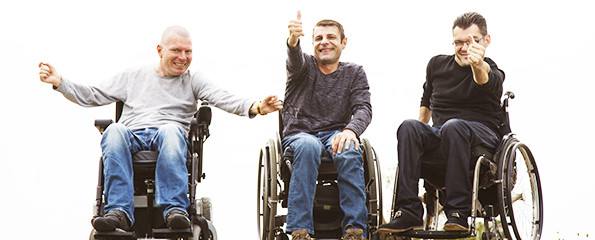Group exercise crucial for people with MS
Group exercise should become a standard health practice in South Australia’s public health system to provide much-needed support for people with multiple sclerosis (MS), Flinders University Professor of Physiotherapy Sheila Lennon says.
Professor Lennon says at present, people with MS in South Australia do not receive regular, ongoing physiotherapy in the public health system once they are diagnosed.
“Patients might be entitled to a few sessions with a physiotherapist to work out a management plan but because MS is a long-standing, progressive condition it’s not possible for physiotherapists to see and review them on a regular basis,” Professor Lennon said.
“If someone has a stroke they get admitted to a unit for a period of rehabilitation, followed by a much more targeted approach for community rehabilitation when they are discharged,” she said.
“But people with MS don’t have the same access to services so something like a structured group exercise program would make therapy more accessible.”
The push follows a major study led by Professor Lennon in the UK, which found significant improvements in balance, mobility and quality of life for 177 MS patients who were involved in a series of structured group exercise classes between 2008 and 2011.
Groups of up to eight participants at a time were recruited for the circuit-style exercise classes, facilitated by a physiotherapist and an assistant, where they learnt techniques to improve balance, coordination and mobility. The sessions also included an education component whereby participants learnt self-management and goal-setting strategies, particularly regarding falls prevention.
“The participants were taught exercises that they could easily carry out in their own homes or communities – we didn’t use any fancy equipment because the whole idea was to make it accessible,” Professor Lennon, who presented the findings at the World Congress for NeuroRehabilitation in 2012 and the Australian Physiotherapy Combined Sections Conference in 2013, said.
“We found significant improvements in their balance, mobility, walking speed and quality of life in terms of participating in leisure and in the community.
“The take home message from the study was that it really is feasible to treat people with MS in a group exercise setting in the community.”
Professor Lennon has now developed a training manual that enables clinicians to deliver the program “in a way that doesn’t put excessive demand on the health department”, and is in talks with the Multiple Sclerosis Society of SA/NT and SA Health to explore the feasibility of running the program.
“Instead of seeing one person at a time, which clogs up waiting lists, the physiotherapist could run the classes over a six-week period every three months so people can join in when they want and continue using the exercises at home between breaks in the program.
“MS is a disease that strikes people in the prime of life, between the ages of 20 and 45 years, which means they’re still working, raising families and dealing with financial responsibilities so anything we can do to improve their quality of life should be explored.”
(Source: Flinders University)
Dates
Tags
Created by:

 Login
Login














